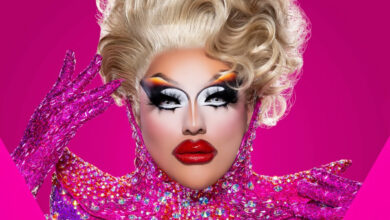
Queer and Undocumented: Immigration Reform is an LGBT Equality Issue
By James Lee
Over the past few years there has been a lot of discussion on the topic of immigration reform. Although the discourse often takes on an ugly “us versus them” tone, the fight for immigration reform is not separate from the fight for LGBT equality. Queer people of color are often among those most affected by this country’s broken immigration system.
The Williams Institute at UCLA estimates there are more than 267,000 LGBT-identified undocumented people living in the United States. LGBT people in general can suffer from the “minority stress” of ongoing discrimination that often leads to health disparities such as cancer, depression, and different forms of substance abuse such as alcoholism.
LGBT-identified undocumented persons face this kind of reality in addition to the health concerns attached to the stigma of being undocumented. According to a study published by the Center for American Progress, undocumented persons struggle to access healthcare services, have increased barriers to obtaining health insurance, and often work in environments with a higher risk of injury.
While undocumented persons are often portrayed as families fleeing their country of origin due to political violence or drug cartels, Montaña Thames, a Raíz [Spanish for “Roots”] organizer for Planned Parenthood in Houston, says “a lot of queer folks are fleeing because they cannot be who they are [in their native countries]. For them, immigration is a way to survive as queer people.”
This is true for many undocumented LGBT-identified persons, especially cisgender women or transgender and feminine-presenting individuals such as undocumented trans-Latina activist Bamby Salcedo and the queer activist known as Yenny. Both Yenny and Salcedo experienced physical and mental abuse in their countries of origin due to their identities.
Yenny, originally from Peru, grew up with an abusive father who would beat her when she wore baggy clothes, forcing her to conform to cultural gender norms. After seeking asylum in the United States, Yenny would find herself confronted with new struggles as an undocumented queer person. Unemployable because of her undocumented status and rejected by family for her queer identity, she struggled with thoughts of suicide.
As a transgender woman in Mexico, Salcedo was beaten, abused, and wrongfully imprisoned due to her gender identity. After immigrating to the United States to seek asylum, she was eventually placed in detention where she experienced continued sexual assaults.
Through her work with the Latino community, Thames hopes to address these issues from a reproductive health perspective and advocate for greater trans-inclusive healthcare policies. “Discussions about [reproductive health and immigration] should include transgender and queer folks—not just a classic image of the undocumented person, but also a discussion on what it means to be persecuted because of your gender identity,” Thames says.
While Congress continues to delay plans for comprehensive immigration reform and the Employment Non-Discrimination Act—a proposal that would protect LGBT workers from discrimination—activists like Thames will continue to advocate for local progress for queer and undocumented persons.
James Lee is the Public Affairs Field Specialist at Legacy Community Health and focuses on minority health, mental health, and civic engagement. Lee is a graduate of the University of Houston and can be found on Twitter @jamesmateolee.










